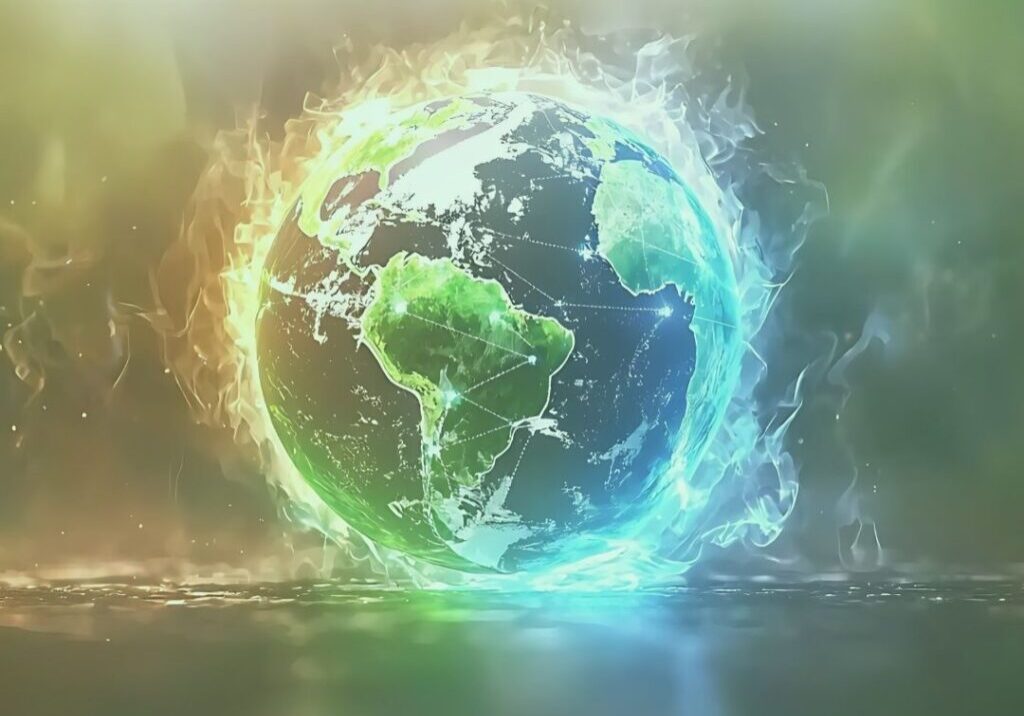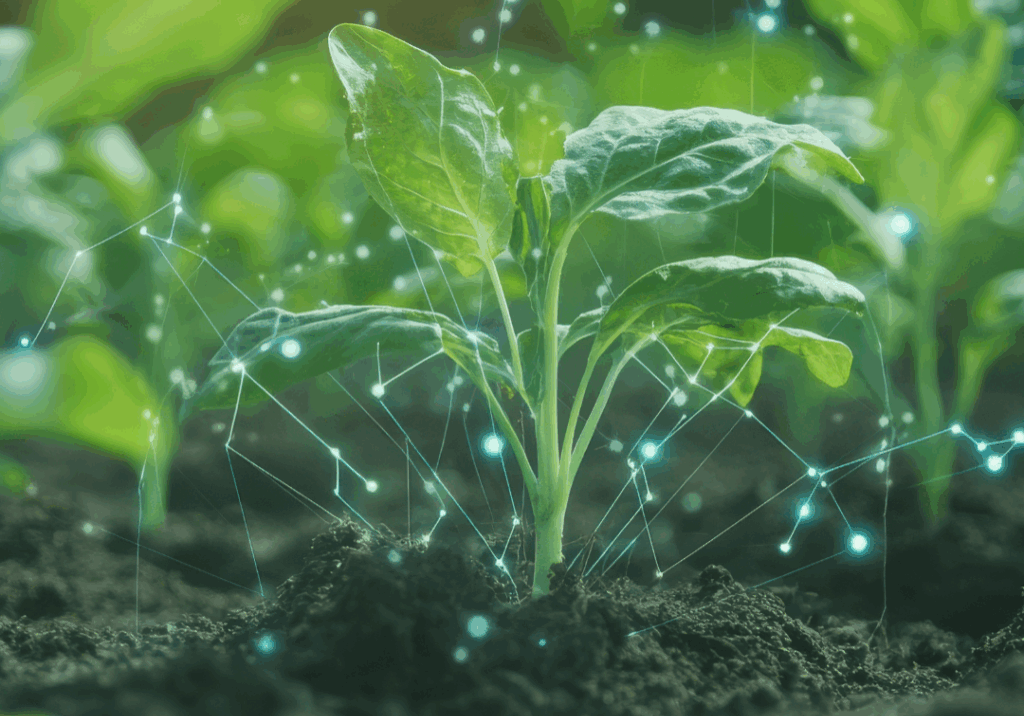Christianity, Justice and Ecology in An Age of Crisis
“But ask the animals and they will teach you; the birds of the air and they will tell you;
speak to the Earth and it will teach you; and the fish of the sea will declare to you” (Job 12:7-8).
Christian Animism
This morning I went birding with my friend Dave in the Crum Woods. The Crum Woods is a two-hundred-acre fragment of a once-great forest that stretched across most of the Eastern United States prior to white contact. A vestige of a wider tree canopy, the woods are still a robust habitat for many forest-interior species, including a rich variety of avian life. Today this preserve is managed by Swarthmore College where I am a professor of religion and environmental studies. And so sometime after dawn, Dave and I headed into the woods with our binoculars and digital bird guides to meet small round brightly colored birds called warblers.
During this fall migration time of year, and on a clear sunshiny morning like today, warblers magically appear in a wide range of shades of blue and gold. Traveling a time-tested route called the Atlantic flyway, these birds leave their summer breeding grounds and begin to head south to overwinter in warmer climes. Along the way they flit about in open fields, low shrubby bushes and high up in the treetops looking for food and a chance to rest during their long journeys. No longer interested in attracting mates and building nests, autumn warblers produce little tik-tik-tik sounds as opposed to the distinctive songs they are known for in the spring and summer.
Past the breeding season, birders sometimes note that the colors of fall warblers are a bit muted compared to their spring plumages. But not this morning. Today in the Crum Woods the busy migrants we encountered were painted in a range of colors – cornflower blue, creamy white, dark red and warm chestnut – that flowed beautifully with the purple asters in the meadow and the now-turning yellow-and-brown leaves of nearby trees and shrubs. An extravagant display of color, movement, and buzzy-chippy calls greeted us in the woods. As we watched the myriad of fall warblers seeking food and refuge – Kentucky Warblers, Common Yellowthroats, American Redstarts, Northern Parulas, Magnolia Warblers, Chestnut-sided Warblers, Wilson’s Warblers, and Red-eyed Vireos – I was reminded of Jesus’ saying, “Consider the birds of the air, how they neither sow nor reap nor gather into barns, and yet your heavenly father feeds them (Matthew 6:26).”
Bearing witness to this intersection of wild birds and God’s providential care is at the heart of my experience of the natural world as hallowed ground. And the basic orientation that drives my appreciation of the Earth as sacred is what I call “Christian animism” – the biblically inflected conviction that all of creation is infused with or “animated” by God’s presence. Staring down multiple crises today – from racist police violence and melting polar ice caps to global pandemic and anthropogenic extreme weather – we desperately need the empowering symbol-systems of spiritual traditions to give us resilience, faith and courage. Could this new but ancient idea of Christian animism be the ground of this hope?
The term animism was popularized by 19th century British anthropologist E. B. Tylor who used it to describe how primordial people attributed “life” or “soul” to all things, living and nonliving. Sharing resonances with the Latin word animus which means soul or spirit, among other definitions, animism came to stand for the orienting world-view of indigenous communities that non-human nature is “ensouled” or “inspirited” with sacred presence and power. As comparative religions scholar Graham Harvey writes, animism
is typically applied to religions that engage with a wide community of living beings with whom humans share this world or particular locations within it. It might be summed up by the phrase “all that exists lives” and, sometimes, the additional understanding that “all that lives is holy.”[1]
In the main, Christian faith offers its practitioners a profound vision of God’s this-worldly identity with all beings. In the Bible, all things are bearers of divinity – the whole biosphere is filled with God’s animating power – insofar as God signals God’s love for creation by incarnating Godself in Jesus and giving the Holy Spirit to indwell everything that exists on the planet. The miracle of Jesus as the living enfleshment of God in our midst – a miracle that is alongside the gift of the Spirit to the world since time immemorial – signals the ongoing vitality of God’s sustaining presence within the order of things. As once God became earthly at the beginning of creation, and as once God became human in the body of Jesus, so now God continually enfleshes Godself through the Spirit in the embodied reality of life on Earth, human and more-than-human.
Carnal Spirit
In some classical models of God, God is unfeeling, self-subsistent, and independent from the ebb and flow of the suffering and deprivations that make up our daily habitations. Metaphysical doctrines about “divine apathy” and “divine impassibility” – the philosophically influenced belief that God is a stolid, dispassionate being not susceptible to the vagaries of mortal existence – sometimes achieved the status of obvious truth in early Christian thought.[2] And yet the earthen Spirit of Christian witness is not a distant abstraction but a living being who subsists in and through all life. Because God as Spirit is one with us, God suffers deeply the loss and abuse we also experience through our continued assaults against one another and our planet home. God as Spirit is pained by ongoing systemic racism and injustice; and God as Spirit undergoes trauma through the stripping away of Earth’s bounty.
In this way, God suffers. As worldwide economic imbalance imperils family stability and intensifies the rage of the jobless, the uninsured, and the dispossessed, God suffers; as the Earth heats up and melting polar ice fields flood shore communities and indigenous habitats, God suffers; as coral reefs bleach into decay and ecosystems of fish and marine life die off, God suffers; and as more people undergo pain and death in a growing pandemic, and as our planet endures what appears to be the era of the Sixth Great Extinction, like other mass death events and previous extinctions, God suffers. When we plunder and lay waste to one another and to the Earth, God suffers.
Hope for Renewal
Christian animism affirms, to paraphrase Graham Harvey’s earlier comment, that all that exists is alive, all that exists is good, and all that exists is holy. We will not save what we do not love, and unless, as a culture, we learn to love one another and care for the gift of the created order again, the prospects of saving ourselves, and protecting our planet, are terrifyingly bleak. In this affirmation, however, we are enabled to resist the forces that are driving the forces of structural violence, viral contagion, global warming, and the loss of biodiversity in our time.
Every generation, to borrow Thomas Berry’s phrase, has its great work. Every generation has an overarching sense of responsibility for the welfare of the whole that gathers together people and societies across their cultural and ideological differences. In this generation, our great work will be to work together against the twin evils of systemic racism and global warming by reenvisioning our relationship to each other and to the Earth not as exploiters but as kinspeople with shared values in a common home. This is the mandate of our time. As Berry writes,
The Great Work before us, the task of moving modern industrial civilization from its present devastating influence on the Earth to a more benign mode of presence, is not a role that we have chosen. It is a role given to us, beyond any consultation with ourselves. We did not choose. We were chosen by some power beyond ourselves for this historical task. We did not choose the moment of our birth, who our parents will be, our particular culture or the historical moment when we will be born . . . . The nobility of our lives, however, depends upon the manner in which we come to understand and fulfill our assigned roles.[3]
Every generation has a sacred calling to seize the moment and confront the forces of oppression and degradation so that future generations can live richer and more meaningful lives. The great work of our generation will be to develop inspired models of fair and sustainable economic development that promote political and climate justice for all of God’s children.
In a biblical idiom, a revival of animist faith is uniquely suited to fire the imagination and empower the will to confront the challenges of racism, eco-catastrophe, and pandemic. Many of the great social movements in the history of the United States – the abolitionist groundswells of the 19th century, the suffragist associations of the early 20th century, the drive for civil rights in the 1950s and 1960s, and most notably in recent history, the Black Lives Matter movement in our own time – were and are energized by prophetic Christian voices who bring together their scriptural values and passion for justice to animate a moral force for change more powerful than any other force to stop them. Religion today, in the face of cataclysmic political unrest, virulent disease and climate change must articulate the peaceful means by which the causes of injustice, plague and ecocide can be addressed and remediated. The hope of Christian animism – the vision of all of God’s children and the whole Earth saturated with divine presence and love – can religiously charge practical responses to the crisis of unjust and unsustainable living today. The supreme calling of our time will be for all of us to find a spiritually grounded and morally compelling approach to engaging the chronic problems we face – and to do so now in a spirit of humility, resilience and hope.
Notes:
[1] Graham Harvey, “Animism – A Contemporary Perspective,” in The Encyclopedia of Religion and Nature, eds. Bron R. Taylor, et al., 2 vols. (New York: Continuum, 2005), 1:81.
[2] See Jaroslav Pelikan, The Christian Tradition: A History of the Development of Doctrine, vol. 1: The Emergence of the Catholic Tradition (100-600) (Chicago: University of Chicago Press, 1971), 172-277.
[3] Thomas Berry, The Great Work: Our Way into the Future (New York: Bell Tower, 1999), 7.
 View print-friendly version
View print-friendly version
2 Comments
Related Posts

The Earth Groans, AI Grows: Who Guides the Flame?
In this critical moment of planetary history, where ecosystems collapse, artificial intelligence proliferates, and human meaning trembles on the edge of uncertainty, we are faced with a profound question: What kind…


How am I to respond to the challenge? What strengths do I have to influence others in regards to our damaged ecosystem, our unequal sharing of what is, our blindness to the damage we as a whole are doing? Other than donating money, how do we spread the word? What power do we have over politicians who care more for their own fame and income than how they can use their office to serve the people who elected them and the biology of existence? Is there hope? Life will go on with or without humans. We are in a sad state of affairs today. Sometimes I wonder if the Coronavirus, and its affect on who we were as a society, is not a message from God to wake us up. But it does not seem to be working.
So beautifully and powerfully written . As ChristoPagan, “Christian Animism” is not a foreign concept. Merely looking about, I can see no boundary between the Divine and me. Whether in nature or crafted my human the Divine was, is, and will always be present.
Yes, that we are here now, living now, is no “coincidence( something I don’t believe in). It is synchronicity. We are here because this is our journey. This is our generation. This is our “World War”. How we end this war will determine so many things. But this is for sure…if ever another “Great Generation” was needed-it’s now.